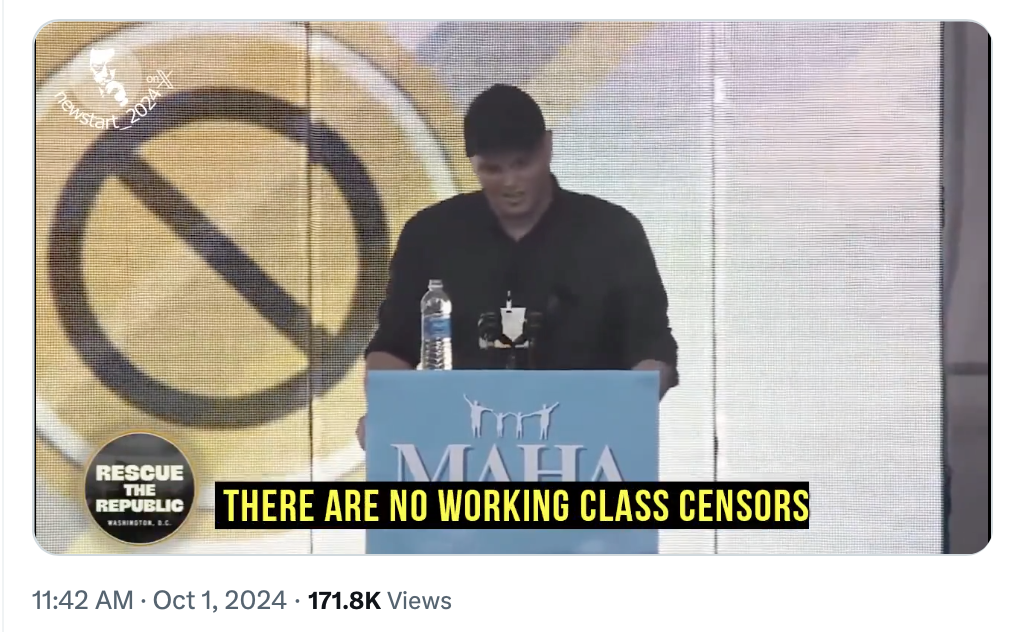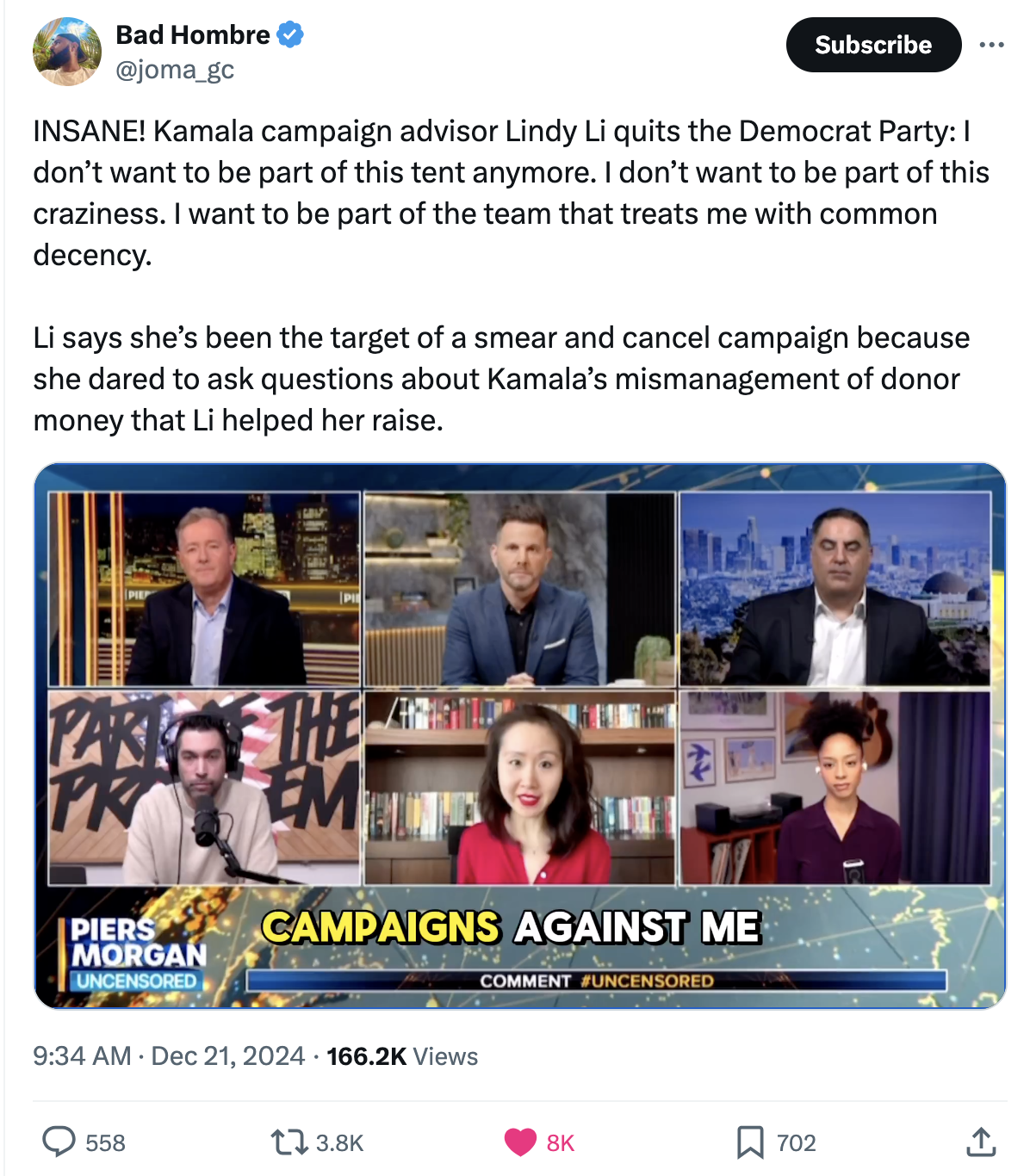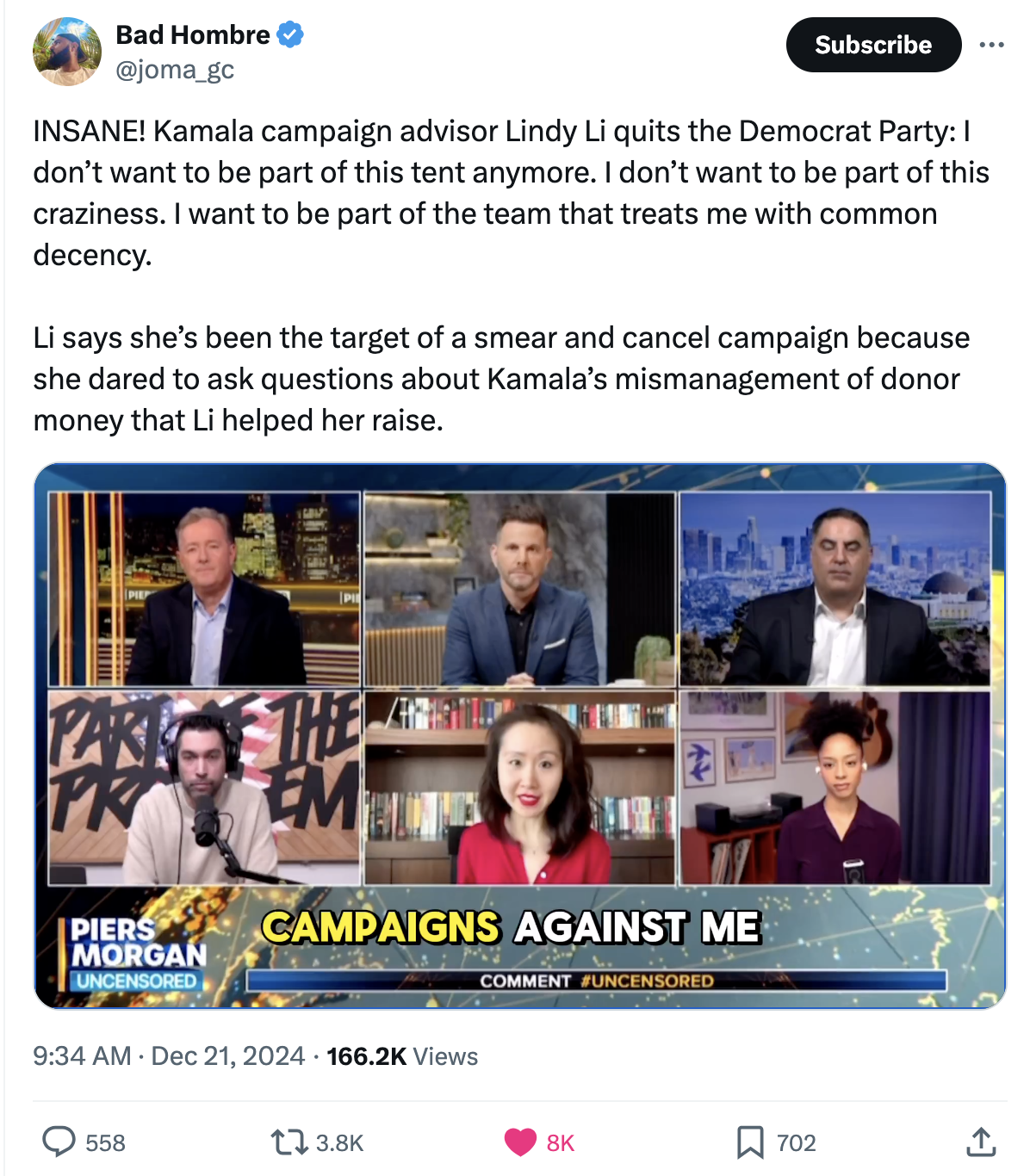The Founders must be spinning in their graves. Now it's coming out, after the election, of course. This demonstrates the power of bought media and the power of tribalism. The fact that they hid Biden's condition so well demonstrates the horrific things that can be done in the name of "democracy." Never again trust anyone who asks you to trust them. It's going to make it a lot harder to figure out what is going on, but it's your only option. Nellie Bowles at The Free Press (visit her article for lots of links):
Oh, Joe Biden: He’s still the sitting president, so we begin here. Another week brings us yet more details on how far Biden has been falling mentally, this time coming from The Wall Street Journal, where a team of reporters describe an insulated, out-of-contact Joe, beginning when he took office. Over his presidency he’s had very, very little contact with people you’d think of as important top figures in the government. We already know he didn’t do evenings, but he wasn’t great in the mornings either. But the 40 minutes in the middle of the day after his nap and before his IV drip? That’s the gold right there. Right at 2:20–3? That’s when America is Online.
“[I]n the spring of 2021, a national security official explained to another aide why a meeting needed to be rescheduled. ‘He has good days and bad days, and today was a bad day so we’re going to address this tomorrow,’ the former aide recalled the official saying.”
Ahead of the disastrous U.S. withdrawal from Afghanistan, key government figures couldn’t get in touch with Joe. As inflation crushed consumers, then–Treasury Secretary Janet Yellen was on her own.
Here’s Rep. Jim Himes of Connecticut, the top Democrat on the House Intelligence Committee: “I really had no personal contact with this president.”
Biden was the cozy vessel. He was the comforting smile, a flirty wink that said, I’m normal and you’re safe. In the background, up very early and also very late, were busy bee staffers with a very different vision for the country: opening the border on Day One; $175 billion for student loan forgiveness; plus, for good measure, his presidential proclamation recognizing Trans Day of Visibility (what about lesbians, Joe!). Any given day, staffers just put on the Joe Biden bodysuit and did something absolutely bananas and then said whoa, whoa, are you calling Joe Biden a communist?
Anyway, this is me reading tea leaves, but Biden this week chose the leftist magazine The American Prospect to publish his farewell essay. Obama chose The Economist, a stately bugle for intelligent globalists such as myself. Which is all to say: Joe Biden was never a moderate president. From the day he got in, his mind was slipping and his policies were wild, and in polite, elite society we were all supposed to pretend otherwise because he does give a moderate vibe with those shades and the ice cream cones. And he flirted with a biker chick once—doing a little inappropriate flirting does feel moderate. I do regard that as being politically aligned with me.









